The Media School has been an extraordinary experience, not only for the twelve ITN Fellows that took part in it, but also for the lecturers involved: results have been “astonishing”. The school ultimately aimed to provide trainees with practical knowledge, focusing on the requirements of the audiovisual industry and the needs and expectations of a challenging target audience increasingly interested in historical knowledge. For this reason, the first installment of the course can be considered a success. This first installment of the course can be considered a “useful success”.
On Monday, December 1, the Fellows met at the Centro de Ciencias Humanas y Sociales - CSIC of Madrid, equipped with tech-material and curious about what they what they would discover in the following days.
Film Producer Antonio Saura Medrano gave the first lecture at 10 a.m., aiming to solve the ITN Fellows´ most basic doubts and questions: what to work on to December 12 and how to use the camera.
Following his answers was a 20-minute presentation entitled “Documentary and Society”. Here, A. Saura guided the audience through the controversial idea that it is not possible to maintain objectivity while making a documentary. Taking advantage of this first attitude ITN fellows were invited to share their plans for the media project by writing a sketch for the following day.
After lunch, Filmmaker Gonzalo Ballester began his sessions, helping the participants set up the camera to better understand different recording options.
During the second day of the course, A. Saura decided to start dealing with “writing issues” concerning movie making. Therefore, on January 2 he told the ITN Fellows about “How to Write a Documentary”.
Prior to any work a filmmaker must ask himself: “who is going to be my primary target?” because according to A. Saura, screenwriting is all about finding a voice.
Once the main opinions were provided and some screening examples were given, the students began to discuss their suggestions with the professor. Some wanted to know the risk of making the first act of a documentary “too long”, while others proposed the idea that not every documentary must necessarily have a moral or political position of its own.
The end of the day held remarkable participation of the ITN Fellows once the screening of some pieces of Medieval and non Medieval History documentaries was made. The Fellows wanted to know how to start shooting, and when to decide between a short, quick shot and a long, slow one. Professor Antonio Saura gave a wide array of examples from interviews in order to demonstrate the smart choice while shooting testimonies.
Professor Gonzalo Ballester closed the journey by providing a useful clip on the most basic camera shots they could start with and a feasible “setting-up” exercise to better handle with the cameras and micros. All the students were invited to create their own shotlists prior to the first day of recording.
Little did they know on day three, the amount of information suggested for progression was immense: once the students sent the lecturers their abstracts, they were all carefully double-checked and questioned. It was going to be the first day on “Editing Workshop” and everyone was excited.
Professor Sara Azcona, a computer engineer with plenty of professional film editing experience, opened the workshop clear about detail: editors must be careful when saving documents and creating folders. Everyone got the message.
A number of hours followed with doubts, errors, mistakes and questions that first day in the Editing workshop. Then, on the fourth day of the course, Professor Carlos Saura Medrano came to join the group and helped participants with their doubts. The three instructors guided the ITN group, patiently attending to their suggestions. They would have never believed the amazing results they would receive at the end of the week.
That fourth day was also marked by Antonio Saura´s morning session dedicated to the process of “Watching Documentaries,” and to the composition of the shots when shooting the film.
After the three-day-weekend (following the Mid-Term review on Friday the 5th), the ITN Fellows had recorded enough audiovisual material to use during the last week of the course. Each day was divided into different “Editing Workshop” sessions in the morning and pitching arrangements during the afternoon.
The hard working ITN group was invited to take a guided tour through the CCHS Library on Tuesday at midday. The Archives were opened for them. Drawn through the peculiar corridors of the building, they were prompted to ask for more details regarding the periodic publications and digital documents available.
The Final Pitch Session came on Friday the 12th. The students exposed their works during a 10-minute presentation and screening of each clip. Each gave the audience a positive surprise, particularly in regard to the careful music selection. Every three-minute Historic clip received a deserved ovation and the lecturers, headed by Director José Luis López-Linares, provided feedback and suggestions for the students´ following work.
The group was summoned for the Second Installment of the Media School for Historians, in April 2015, and nobody could deny their great expectations for that moment.
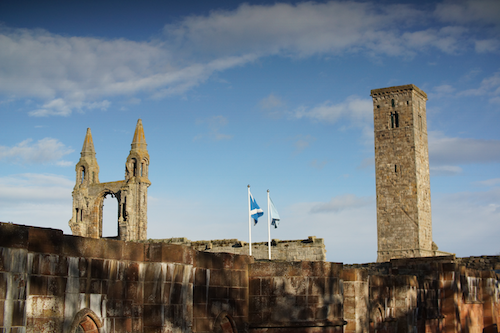
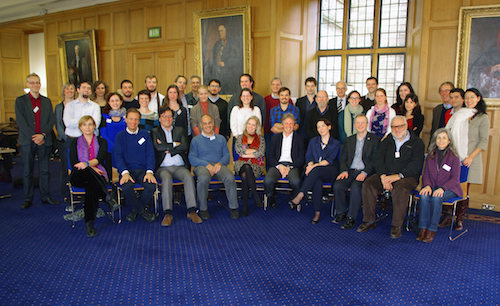
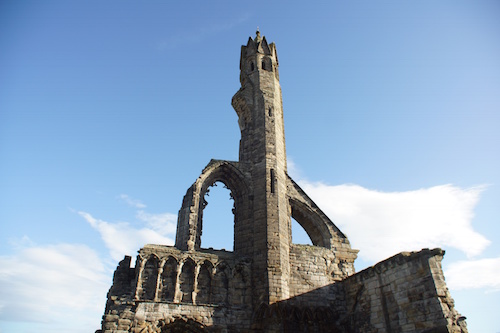
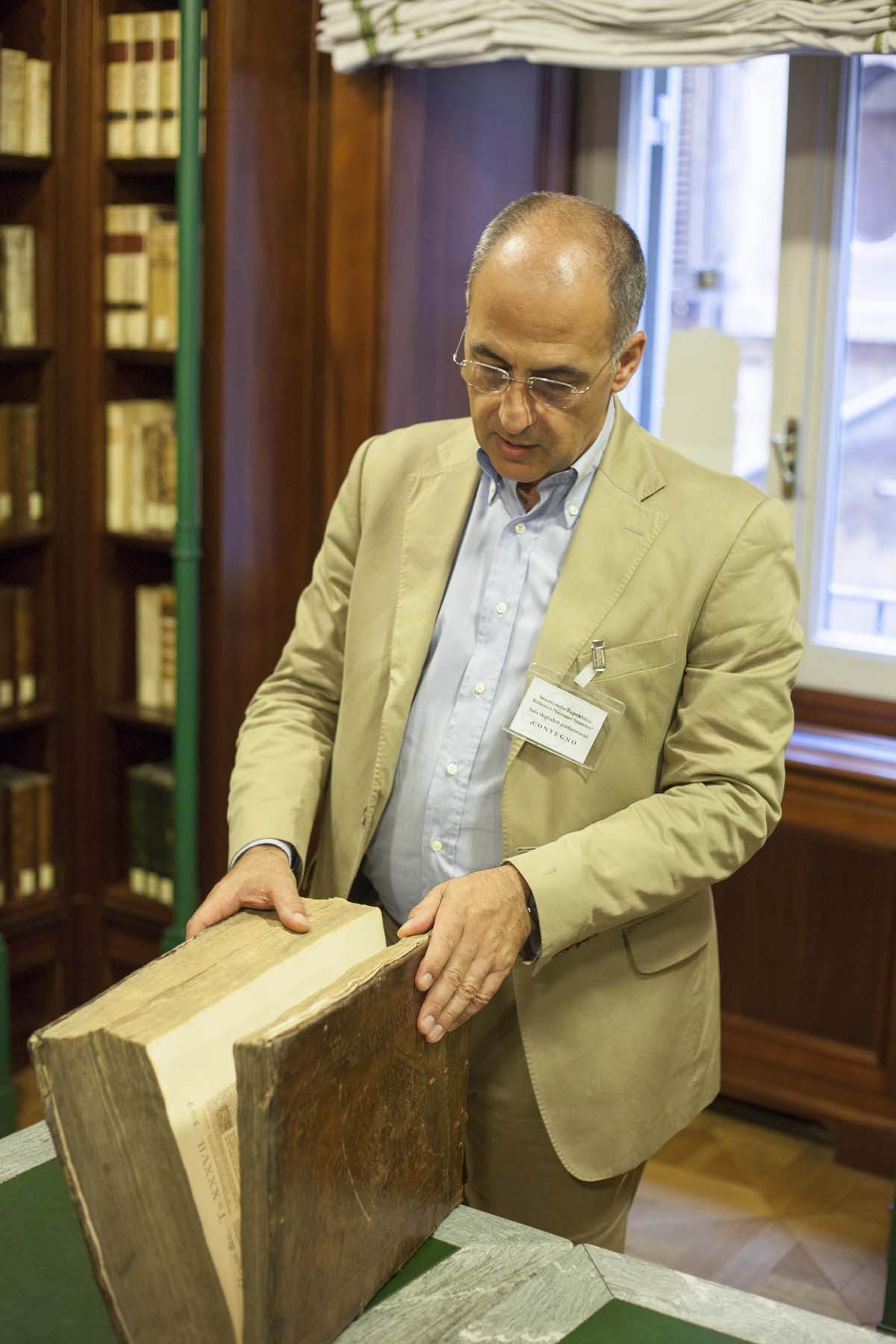
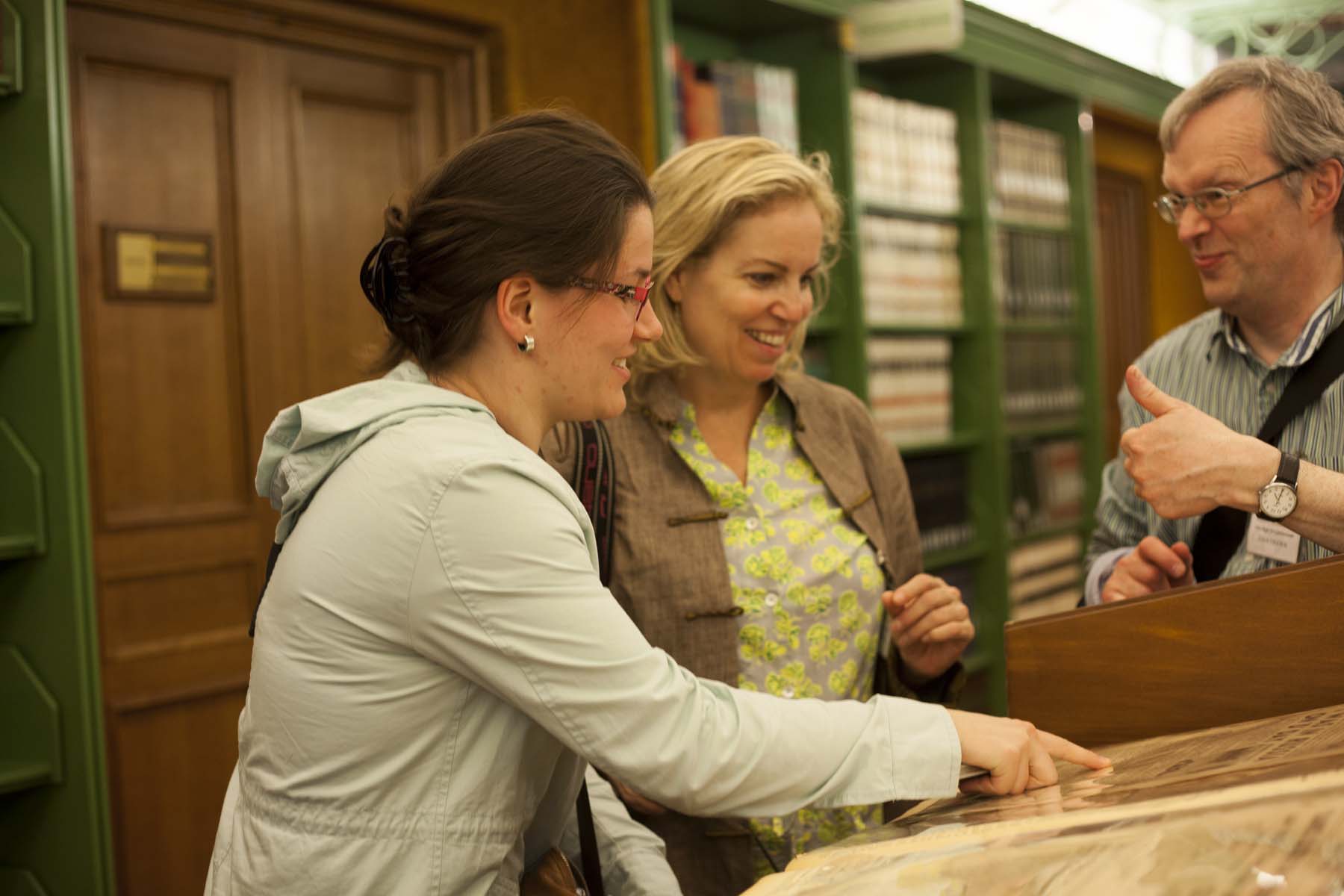
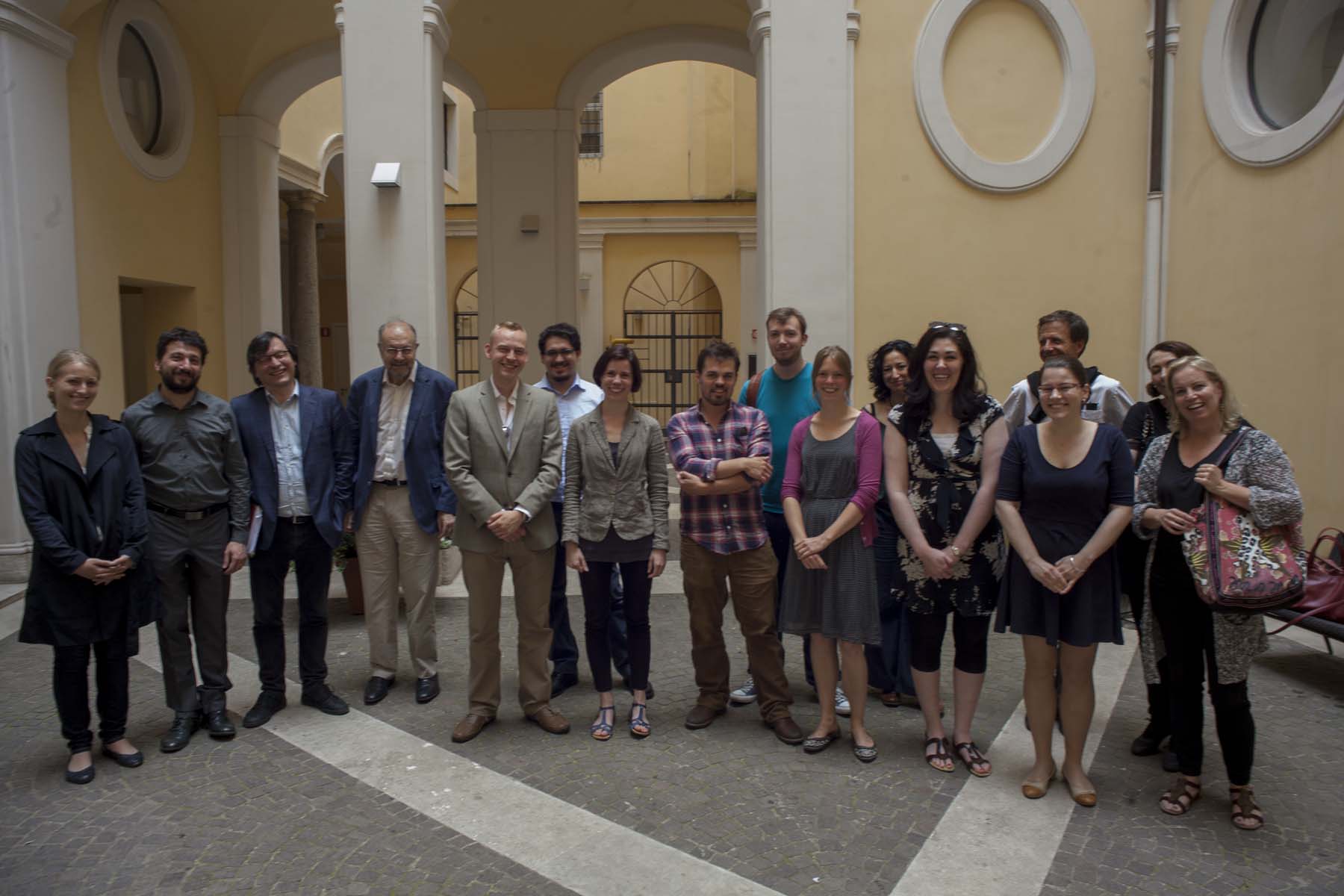
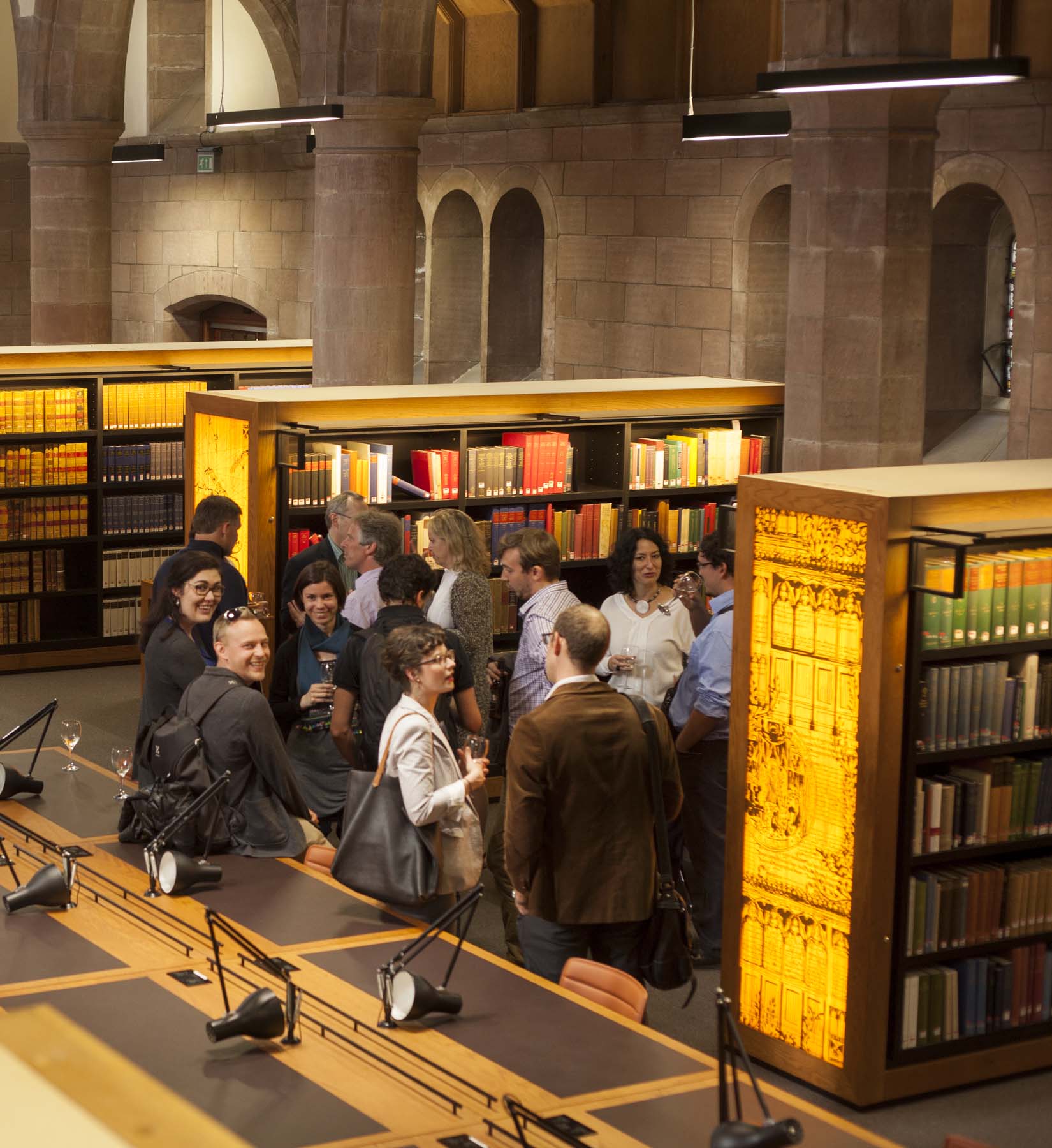
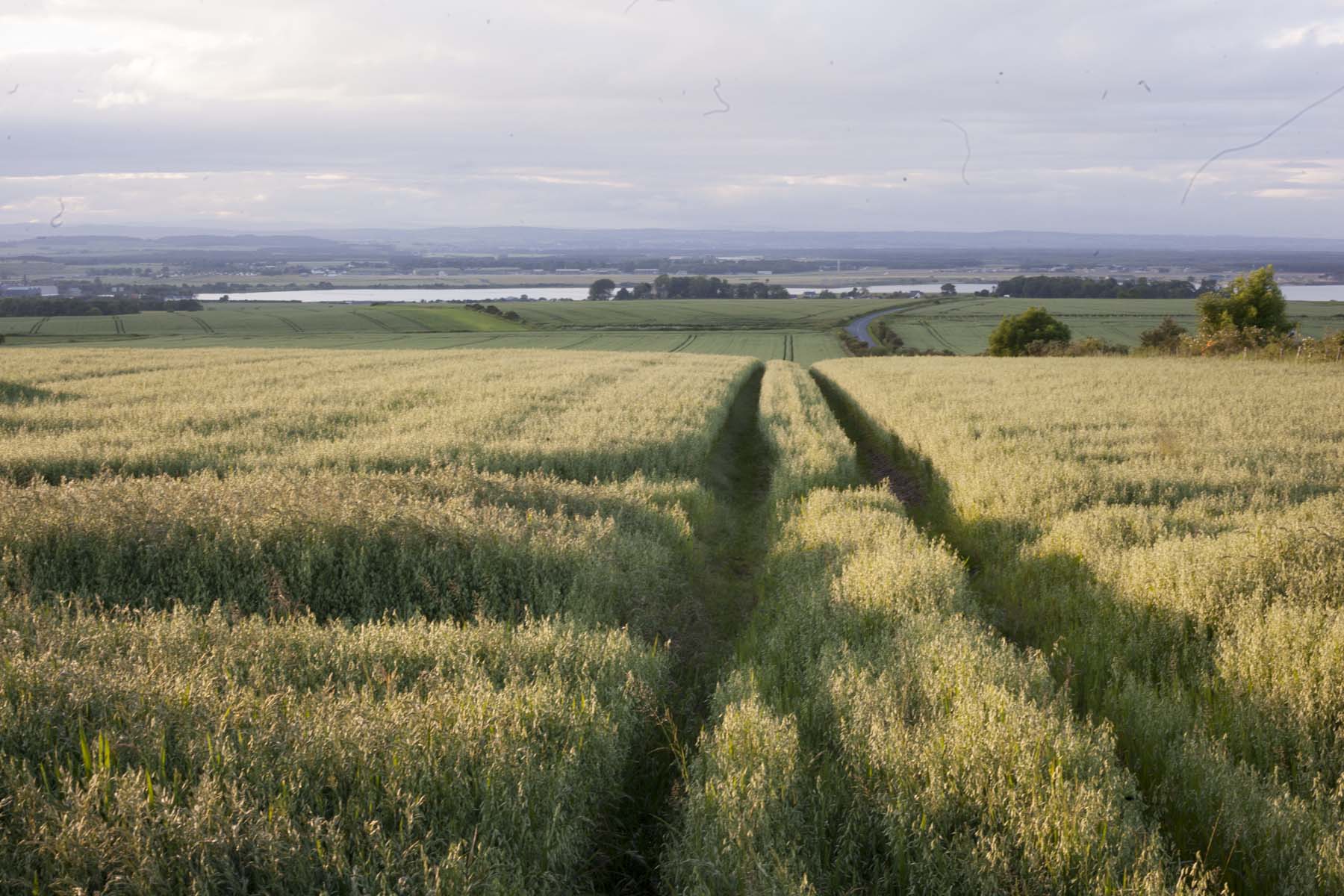
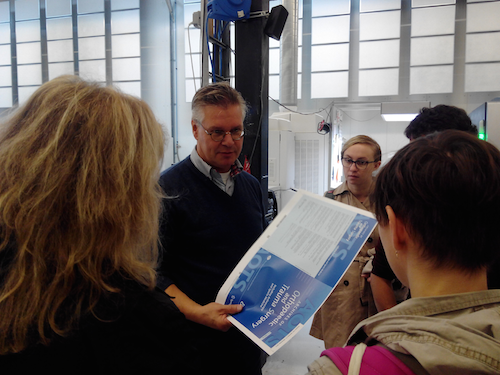
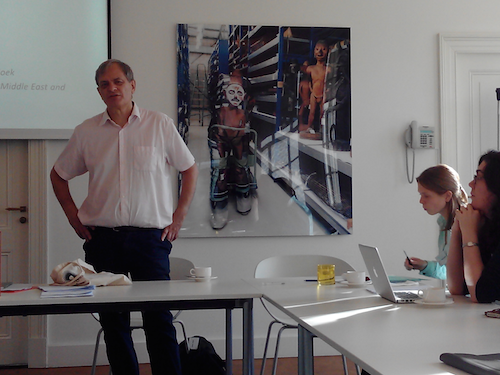
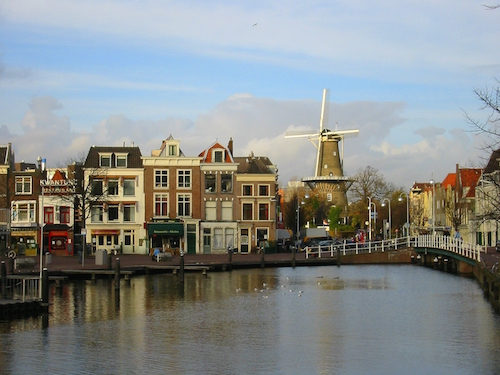

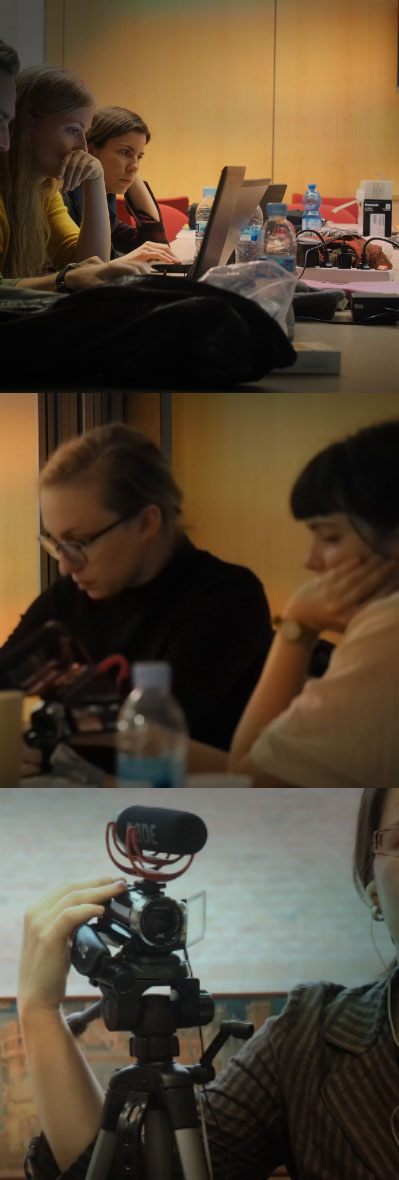
.JPG)
.JPG)
